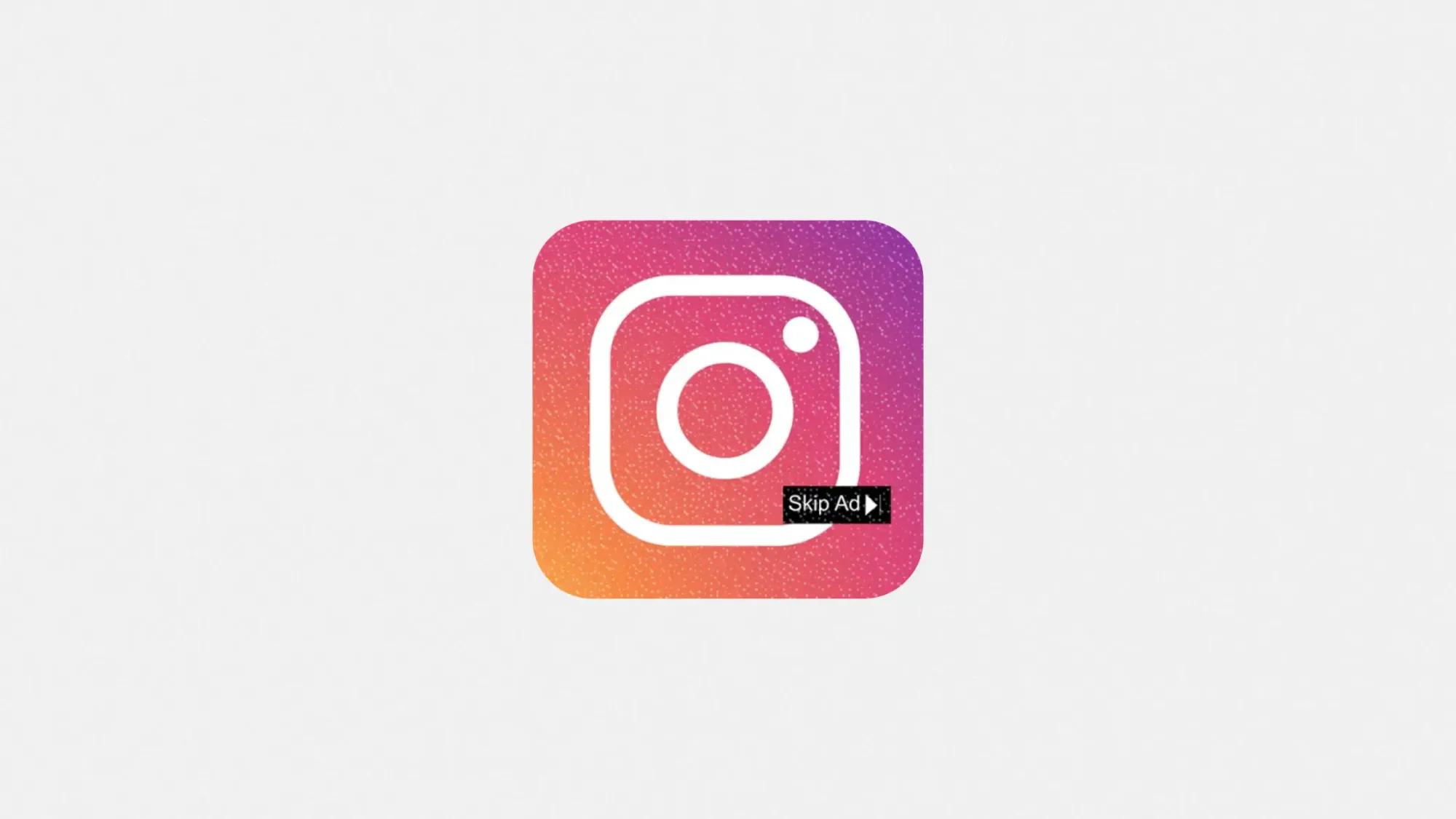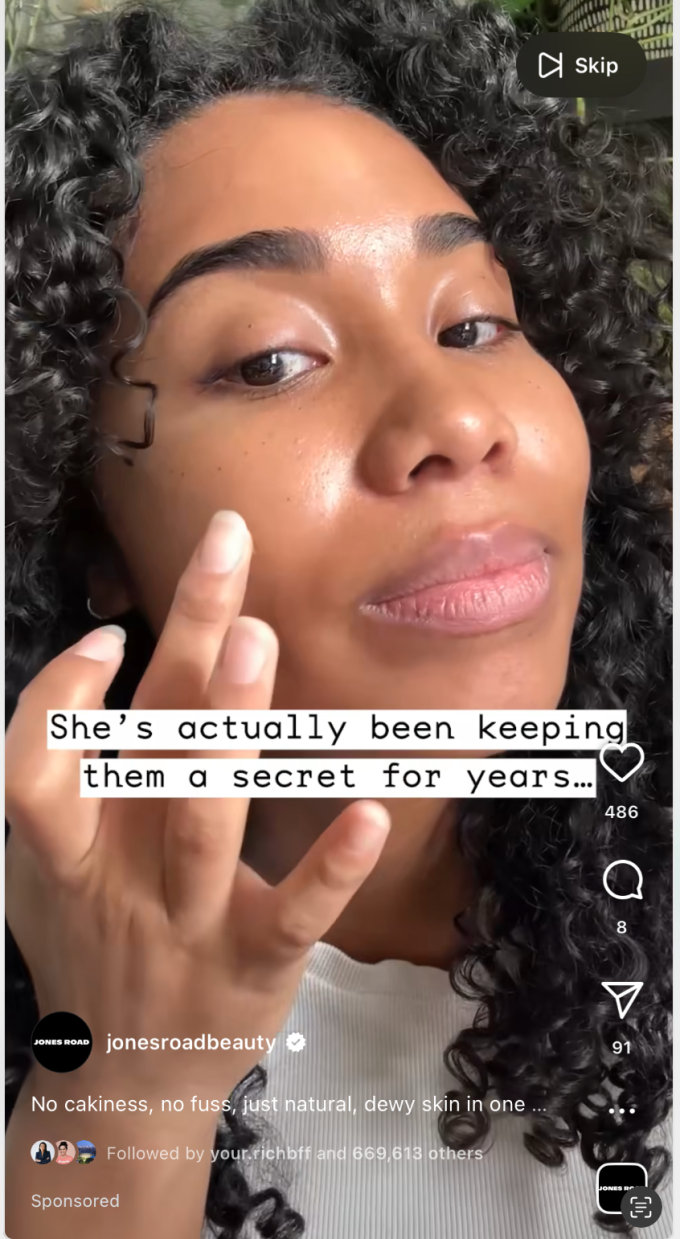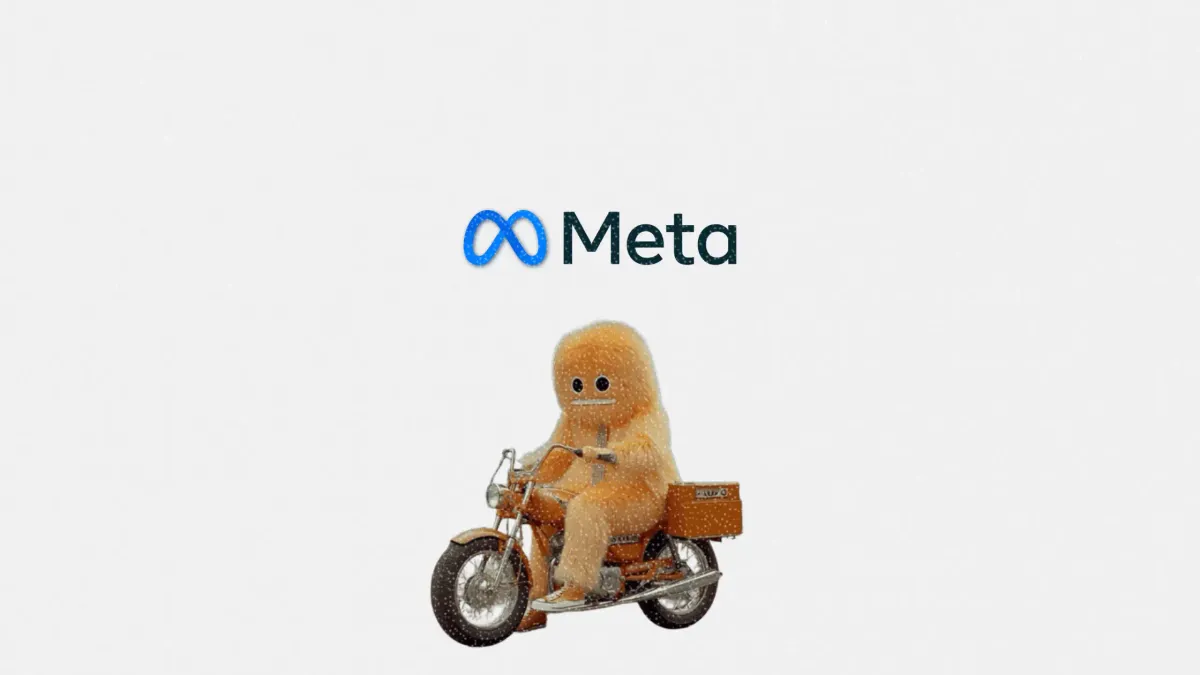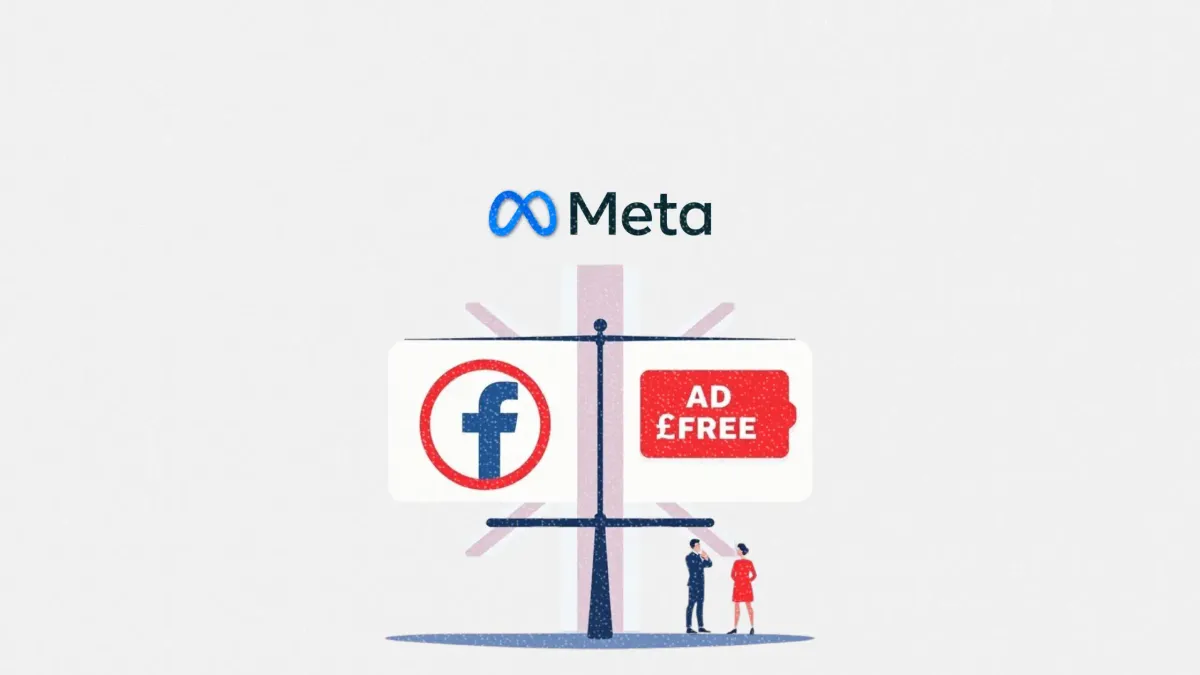Instagram Reels adds skippable ads
Instagram is testing skippable Reels ads, skipping creators in the process

Instagram is experimenting with a skippable ad format inside Reels, giving users the option to bypass video ads mid-scroll. The approach mirrors YouTube’s skippable in-stream ads but without one key feature: a revenue share for creators.
Meta confirmed to ADWEEK that the limited test is designed to explore whether the format helps users discover businesses. A visible countdown timer appears before the ad, followed by a “Skip” button. Tapping it sends users back to the beginning of the Reel. Meta declined to share how long the test would run or whether creators would eventually see revenue.
This article breaks down what Meta is testing, how it stacks up against other platforms, and what marketers should consider as Instagram adjusts its monetization model.
Short on time?
Here’s a table of contents for quick access:
- What Meta is testing on Instagram Reels
- Reels, revenue, and rising social spend
- What marketers should know

What Meta is testing on Instagram Reels
Skippable ads are now showing up in selected Reels feeds. A countdown timer in the top-right corner alerts users that an ad is coming. Once it begins, a “Skip” button appears, allowing the viewer to exit the ad and return to the Reel.

The format closely resembles YouTube’s skippable video ads, which let users skip after five seconds. However, unlike YouTube, Meta is not sharing ad revenue with creators participating in this test. According to Meta, the current focus is on testing business discovery, not monetization.
The test joins other ad types already available in Reels, such as sponsored posts and the non-skippable “ad break” format introduced last year.

Reels, revenue, and rising social spend
Meta is under pressure to grow Reels revenue while keeping users engaged. At the same time, advertisers are shifting more of their budgets to social media platforms.
According to Gartner’s 2025 CMO Spend Survey, marketers are allocating 30.6% of their total budgets to paid media. That’s a 10% year-over-year increase, with social media now ranked as the second-largest digital ad channel.
Greg Carlucci, Senior Director and Analyst at Gartner, noted that “Instagram has a higher purchase intent as a platform compared to Facebook and YouTube.” Testing new formats like skippable ads could help Meta collect more user engagement signals without overloading the feed with intrusive placements.
Still, the lack of monetization for creators could create friction. YouTube’s skippable ads are part of a mature revenue-sharing model that incentivizes creators. Meta’s test, by contrast, leaves creators on the sidelines.

What marketers should know
Meta’s test offers an early signal of where Reels ads could be heading. Here are four things marketers should watch:
1. Engagement-first formats are gaining traction
Skippable ads let Meta measure skip rates, view duration, and creative impact. Even if these ads don’t drive revenue immediately, they can provide valuable insights that inform broader campaign strategies.
2. Creative agility is key
With skippable formats, the first few seconds matter most. Brands should experiment with creative hooks that deliver value or urgency right away. Think of them less as passive brand spots and more like trailers designed to earn attention quickly.
3. Monetization gaps could strain creator partnerships
Because Meta is not paying creators during this test, brands that rely on influencers may need to rethink deal structures. If ad revenue isn't being shared, additional compensation or clearer terms may be needed to keep creators motivated.
4. Don’t underestimate Reels just yet
Even without built-in monetization, Reels remain a critical discovery surface. Instagram’s algorithm continues to favor short-form video, making it a high-impact space for top-of-funnel awareness campaigns and community engagement.
Meta’s skippable ad test might seem like a minor tweak, but it signals a shift in how the company balances monetization, user experience, and platform growth. If successful, skippable ads could become a regular part of the Reels experience.
For now, marketers have a chance to test short-form creative, gather engagement insights, and adapt quickly to new ad formats. But the lack of creator compensation also raises a bigger question: how sustainable is this model for the people fueling the content engine?
Marketers who stay flexible and collaborative—with both platforms and creators—will be best positioned to navigate what comes next.






